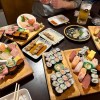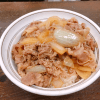
Darn–and here I was really hoping to name my firstborn “Gojira.”
We’ve all heard of some unusual names that celebrities in particular give to their kids. Whether obscure or just plain nonsensical, these types of names are known as “kirakira names” (literally, “sparkling” or “flashy” names) in Japan. Even when bestowed without any feelings of malice, unusual names, especially in cases when the reading of the name kanji differs vastly from typical readings, can present a host of challenges to everyone from the child in question experiencing healthy social development to medical professionals when making records.
However, it appears that kirakira names may soon become a thing of the past if newly proposed legislation is approved to amend Japan’s Family Registration Law, which would limit the phonetic kanji name readings in koseki, family registers, to those that are generally recognizable by society. A subcommittee of Japan’s Legislative Council met on February 2 to compile a draft proposal for revisions to the law. The family registration system records the kinship of individuals from birth until death in Japan, and this would be the very first amendment to be enacted regarding allowable name readings. Part of the motivation for such a change is also that a certain degree of name standardization is necessary for the digitalization of many governmental administrative functions.
▼ February 2 meeting of the Legislative Council
キラキラネームに一定の制約「一般的な読み方を」 法改正要綱案https://t.co/SHfODZKyey
— 毎日新聞 (@mainichi) February 2, 2023
「キラキラネーム」をどこまで許容するかが注目されていましたが、反社会的だったり差別的だったりする読み方に一定の制約を設ける内容となりました。
Specifically, the proposal seeks to impose restrictions on phonetic readings of name kanji that are:
- potentially offensive, discriminatory, obscene, not suitable for nomenclature, or generally unpleasant (e.g., 悪魔 / Akuma / “devil”)
- character names that would cause unease when given to real people (e.g., 光宙 / Pikachu / “Pikachu”)
- contradictory to the meaning of the kanji (e.g., 高 / Hikushi / the kanji’s meaning is “high” but the reading indicates “low”)
- readable as another common name (e.g., 鈴木 / Sato / the kanji are usually read as “Suzuki”)
- completely irrelevant to the kanji (e.g., 太郎 / Maikeru / the kanji are usually read as “Taro” but the reading indicates “Michael”)
- easily misread or not clear (e.g., 太郎 / Jiro / the kanji are usually read as “Taro” but the reading indicates “Jiro”)
▼ “What should I enter in the koseki if Gojira’s no longer an option…?”
As to what makes a kanji name reading “generally recognizable by society,” the Ministry of Justice intends to notify local governments as to which readings qualify–typically speaking, those that are widely acceptable across the country, appear on the common-use kanji list (the 2,136 characters currently taught in primary and secondary school), or appear in the Kanwa Jiten (the definitive dictionary of kanji used in Japan). If the proposed revisions are enacted, the person listed as the family head in a koseki must notify local government agencies of the kanji readings of their surname and all first names of family members within one year. If they fail to comply, standard name readings may be assigned instead. Individuals will also be able to petition agencies in the case of unusual name readings that don’t appear in the dictionary with an explanation for their request.
Final discussions regarding the changes are scheduled to take place at a general assembly meeting of the Legislative Council, after which a recommendation will be submitted to the Minister of Justice. The goal would be to eventually submit the bill during the regular session of the National Diet.
Since it sounds like my request to name my future theoretical child after the King of Monsters is probably a no-go at this point, I guess I’ll have to settle for something a little more ordinary.
Source: Mainichi Shimbun via Golden Times
Top image: Pakutaso
Insert image: Pakutaso
● Want to hear about SoraNews24’s latest articles as soon as they’re published? Follow us on Facebook and Twitter!


 Japanese government will check and judge new baby name pronunciations, presents guidelines
Japanese government will check and judge new baby name pronunciations, presents guidelines Foreign tourists in Japan will get free Shinkansen tickets to promote regional tourism
Foreign tourists in Japan will get free Shinkansen tickets to promote regional tourism Saitama is home to the best strawberries in Japan that you’ve probably never even heard of
Saitama is home to the best strawberries in Japan that you’ve probably never even heard of Survey finds that one in five high schoolers don’t know who music legend Masaharu Fukuyama is
Survey finds that one in five high schoolers don’t know who music legend Masaharu Fukuyama is Adorable Totoro acorn key holders come with a special guest hidden inside[Photos]
Adorable Totoro acorn key holders come with a special guest hidden inside[Photos] New smartphone game turns car models into anime girls with model-worthy looks
New smartphone game turns car models into anime girls with model-worthy looks Shinjuku izakaya’s all-you-can-eat-and-drink plan is one of Tokyo’s best secret cheap eats
Shinjuku izakaya’s all-you-can-eat-and-drink plan is one of Tokyo’s best secret cheap eats Problem solved: How to open a Japanese convenience store onigiri rice ball【Pics and video】
Problem solved: How to open a Japanese convenience store onigiri rice ball【Pics and video】 A visit to the oldest Yoshinoya chain in Japan for one last beef bowl before it closes for good
A visit to the oldest Yoshinoya chain in Japan for one last beef bowl before it closes for good Japan’s oldest Yoshinoya branch reopens in a new location: Tokyo’s brand-new Toyosu fish market
Japan’s oldest Yoshinoya branch reopens in a new location: Tokyo’s brand-new Toyosu fish market Kura Sushi wants to see you smile for a chance to win prizes
Kura Sushi wants to see you smile for a chance to win prizes The 10 most annoying things foreign tourists do on Japanese trains, according to locals
The 10 most annoying things foreign tourists do on Japanese trains, according to locals Starbucks Japan releases new sakura goods and drinkware for cherry blossom season 2026
Starbucks Japan releases new sakura goods and drinkware for cherry blossom season 2026 Naruto and Converse team up for new line of shinobi sneakers[Photos]
Naruto and Converse team up for new line of shinobi sneakers[Photos] Is Sapporio’s Snow Festival awesome enough to be worth visiting even if you hate the snow? [Pics]
Is Sapporio’s Snow Festival awesome enough to be worth visiting even if you hate the snow? [Pics] Japan has trams that say “sorry” while they ride around town…but why?
Japan has trams that say “sorry” while they ride around town…but why? Tokyo Skytree turns pink for the cherry blossom season
Tokyo Skytree turns pink for the cherry blossom season Sakura Totoro is here to get spring started early with adorable pouches and plushies
Sakura Totoro is here to get spring started early with adorable pouches and plushies Poop is in full bloom at the Unko Museums for cherry blossom season
Poop is in full bloom at the Unko Museums for cherry blossom season Shibuya Station’s Hachiko Gate and Yamanote Line stairway locations change next month
Shibuya Station’s Hachiko Gate and Yamanote Line stairway locations change next month Japan’s new “Cunte” contact lenses aren’t pronounced like you’re probably thinking they are
Japan’s new “Cunte” contact lenses aren’t pronounced like you’re probably thinking they are Japan’s newest Shinkansen has no seats…or passengers [Video]
Japan’s newest Shinkansen has no seats…or passengers [Video] Foreigners accounting for over 80 percent of off-course skiers needing rescue in Japan’s Hokkaido
Foreigners accounting for over 80 percent of off-course skiers needing rescue in Japan’s Hokkaido Super-salty pizza sends six kids to the hospital in Japan, linguistics blamed
Super-salty pizza sends six kids to the hospital in Japan, linguistics blamed Starbucks Japan unveils new sakura Frappuccino for cherry blossom season 2026
Starbucks Japan unveils new sakura Frappuccino for cherry blossom season 2026 Take a trip to Japan’s Dododo Land, the most irritating place on Earth
Take a trip to Japan’s Dododo Land, the most irritating place on Earth Is China’s don’t-go-to-Japan warning affecting the lines at a popular Tokyo gyukatsu restaurant?
Is China’s don’t-go-to-Japan warning affecting the lines at a popular Tokyo gyukatsu restaurant? Survey asks foreign tourists what bothered them in Japan, more than half gave same answer
Survey asks foreign tourists what bothered them in Japan, more than half gave same answer Japan’s human washing machines will go on sale to general public, demos to be held in Tokyo
Japan’s human washing machines will go on sale to general public, demos to be held in Tokyo Starbucks Japan releases new drinkware and goods for Valentine’s Day
Starbucks Japan releases new drinkware and goods for Valentine’s Day We deeply regret going into this tunnel on our walk in the mountains of Japan
We deeply regret going into this tunnel on our walk in the mountains of Japan Studio Ghibli releases Kodama forest spirits from Princess Mononoke to light up your home
Studio Ghibli releases Kodama forest spirits from Princess Mononoke to light up your home Major Japanese hotel chain says reservations via overseas booking sites may not be valid
Major Japanese hotel chain says reservations via overseas booking sites may not be valid Put sesame oil in your coffee? Japanese maker says it’s the best way to start your day【Taste test】
Put sesame oil in your coffee? Japanese maker says it’s the best way to start your day【Taste test】 No more using real katana for tourism activities, Japan’s National Police Agency says
No more using real katana for tourism activities, Japan’s National Police Agency says